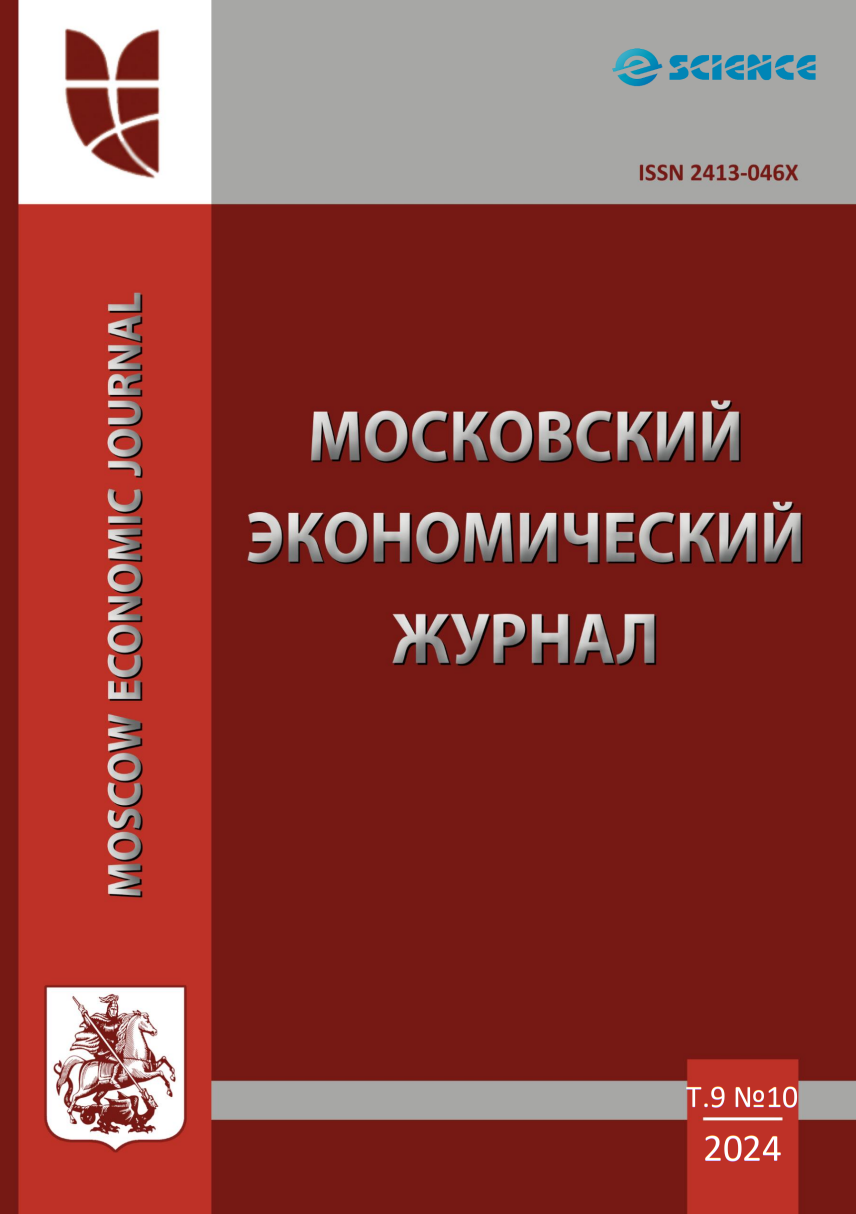Russian State Social University (Faculty of Economics and Management, Deputy Dean of the Faculty)
Russian Federation
UDC 338
The article considers the theoretical analysis of the concept of educational consulting in the paradigm of digital transformation of the economy. Attention is paid to the tasks facing teachers, the possibility of outsourcing some of them to independent specialists is determined. The place of consulting services in an educational institution is determined, the advantages and disadvantages of the work of third-party consultants of the organization are considered. All educational organizations operating in the Russian Federation at any level have a number of problems. The educational process is represented by several parties, including management, teachers who transfer their knowledge and professional experience, and students who, in turn, acquire this knowledge. Modern conditions of the external environment, social, economic and political transformations do not pass without a trace for the labor market, accordingly, the requirements for graduates have changed, who must have the necessary competencies, knowledge and skills to meet the needs of employers. In this regard, there is an urgent need to modernize the educational process, re-equip the material and technical base of the educational institution, improve educational and methodological documentation, financial and economic activities of the organization, delve into the psychological component of pedagogical work with students, and much more. In this case, the best option would be to involve an outside specialist, a consultant who, while maintaining independence and objectivity, will be able to increase the efficiency of the educational organization in a number of areas.
consulting, educational consulting, educational system, outsourcing, consulting services, digital transformation, remote work
1. Ivanova V.V. Rynok konsaltingovyh uslug v sovremennyh usloviyah mirovoy ekonomiki / V.V. Ivanova // Ekonomika i biznes: teoriya i praktika. 2022. № 2 (84). S. 55-57.
2. Obolonskiy Yu.V. Cifrovaya transformaciya gosudarstvennogo upravleniya // Ekonomika i upravlenie: problemy, resheniya. 2022. T. 1. № 10 (130). S. 103-109.
3. Kulikov A.V., Vasina E.V., Podgotovka personala kak klyuchevaya problema kadrovogo obespecheniya organizaciy, funkcioniruyuschih na rynke konsaltingovyh uslug// V sbornike: Aktual'nye problemy truda i razvitiya chelovecheskogo potenciala. Vuzovsko-akademicheskiy sbornik nauchnyh trudov. Sankt-Peterburg, 2021. S. 44-48.
4. Pesockaya E.V. Upravlencheskiy konsalting v sisteme nepreryvnogo professional'nogo obrazovaniya / E.V. Pesockaya, L.G. Selyutina, A.M. Slinkov, M.O. Ivanova // Nauchnyy rezul'tat. Tehnologii biznesa i servisa. - 2021. - T. 7. - № 3. - S. 84-95.
5. Ekonomicheskiy konsalting / S.B. Baurina, M.V. Zurin, A.R. Esina [i dr.] ; REU im. G.V. Plehanova. – Moskva : Rossiyskiy ekonomicheskiy universitet imeni G.V. Plehanova, 2023. – 216 s. – EDN EUHLOC. – Tekst : neposredstvennyy.
6. Rzhavina N.D., Fedorova S.N. KONSALTINGOVAYa STRUKTURA I NAPRAVLENIYa OBRAZOVATEL'NOGO KONSALTINGA V VUZE // Sovremennye problemy nauki i obrazovaniya. – 2021. – № 5.;URL: https://science-education.ru/ru/article/view?id=31071 (data obrascheniya: 06.11.2024).
7. Kasprzhak A. G., Kobceva A. A., Shishkina M. E. Pedagogicheskoe liderstvo kak resurs razvitiya sistemy obrazovaniya i ob'ekt izmereniya // Obrazovanie i samorazvitie. 2019. T. 14. № 1. S. 68−79. DOI: 10.26 907/esd14.1.08.
8. Sahanskiy N. B. Rol' i mesto konsul'tanta v obrazovatel'nom processe // Upravlenie obrazovaniem: teoriya i praktika. 2021. № 1 (17). S. 79–98.
9. Shvecova N.K., Shvecov A.V. ORGANIZACIYa KONSALTINGOVYH USLUG V OBRAZOVANII: PROBLEMY I REShENIYa // Sovremennye problemy nauki i obrazovaniya. – 2022. – № 4. ;URL: https://science-education.ru/ru/article/view?id=31959 (data obrascheniya: 07.11.2024).
10. Todika M.V. Tendencii razvitiya rynka konsaltingovyh uslug v RF v usloviyah krizisa / M.V. Todika, V.E. Tibilova // V sbornike: Obschestvo i ekonomika znaniy, upravlenie kapitalami: cifrovaya ekonomika znaniy. Krasnodar, 2022. S. 452-457.
11. Steeie F. Consulting for organisational change. — Amherst, MA: University of Massachusetts Press, 1999. – 231s.
12. Greiner L.E., Metzger R.O. Consulting to management. — EnglewoodCliffs,NJ: Prentice Hall, 1983. – 564 s
13. Pesockaya E.V., Selyutina L.G., Slinkov A.M., Ivanova M.O. Upravlencheskiy konsalting v sisteme nepreryvnogo professional'nogo obrazovaniya// Nauchnyy rezul'tat. Tehnologii biznesa i servisa. 2021. T. 7. № 3. S. 84-95.
14. Häyrinen-Alestalo, M., Peltola, U. The Problem of a Market-oriented University // Higher Education. 2019. № 52. P. 251–281 DOI: https://doi.org/10.1007/s10734-004-2749-1
15. Lapekina, N.N. Rol' i znachenie sfery obrazovatel'nyh uslug na sovremennom etape razvitiya gosudarstva / N.N. Lapekina // Problemy i perspektivy razvitiya obrazovaniya v Rossii. – 2021. - №8. – S. 344-348











